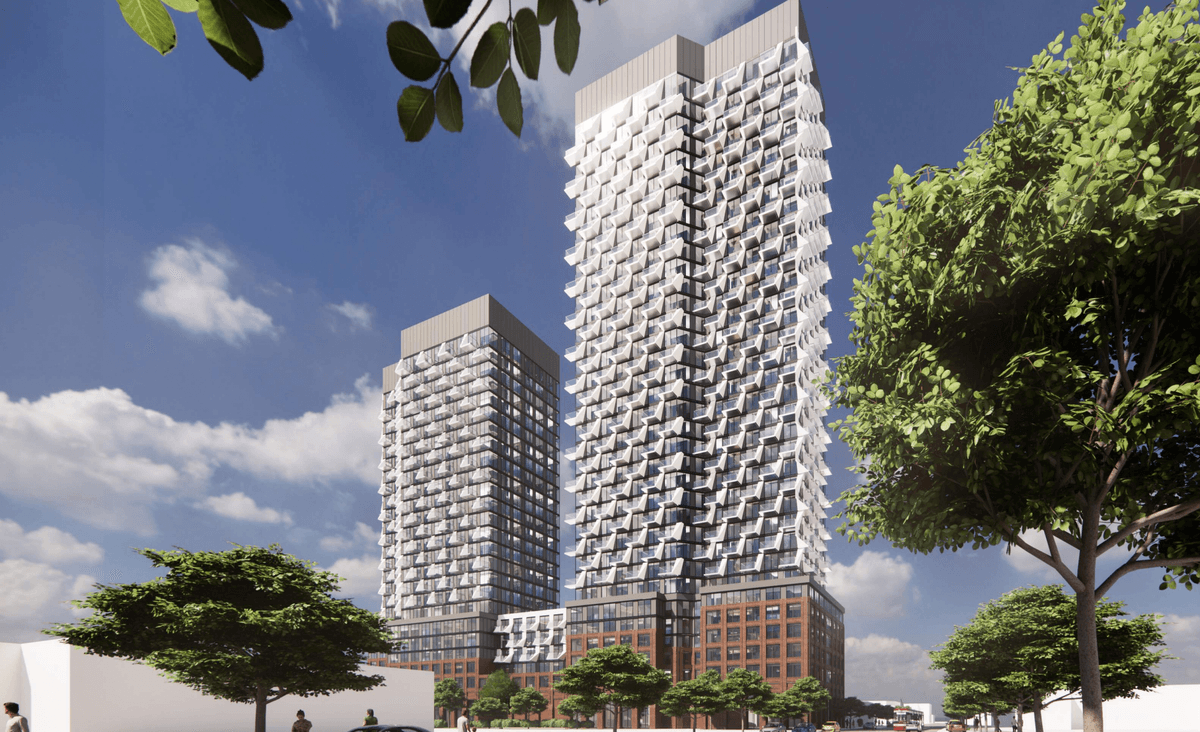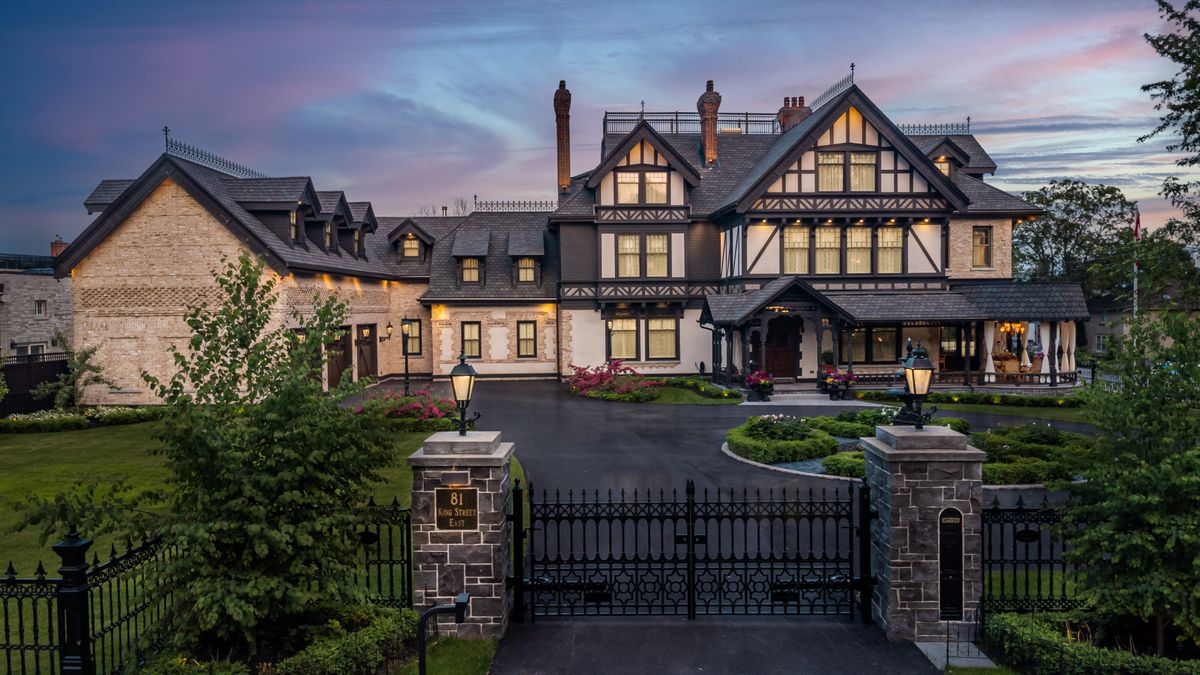The City of Vancouver is looking at a series of potential bylaw amendments focused on its stock of single-room occupancy (SRO) housing, according to a report that's headed to Council on Tuesday, May 30.
Privately-owned SROs are being removed from Vancouver's inventory of low-income housing at a rapid rate due to reduced investment in those that are the most affordable, making them increasingly unsafe, while those that do receive investment are becoming increasingly unaffordable, even to those receiving income assistance from the government.
SROs have historically served as last-resort housing for those experiencing or at-risk of homelessness and consist of little more than 100 sq. ft of living space, with barely space for more than a bed, with residents typically sharing bathrooms and cooking facilities.
The City of Vancouver says it currently has an inventory of just over 6,500 rooms across 146 SRO buildings, most of which are concentrated in or around the Downtown Eastside. Just about half of the SRO rooms (but more than half of the buildings) are privately-owned and operated, with the remainder owned by various other parties such as the City, BC Housing, and the Chinese Benevolent Society.
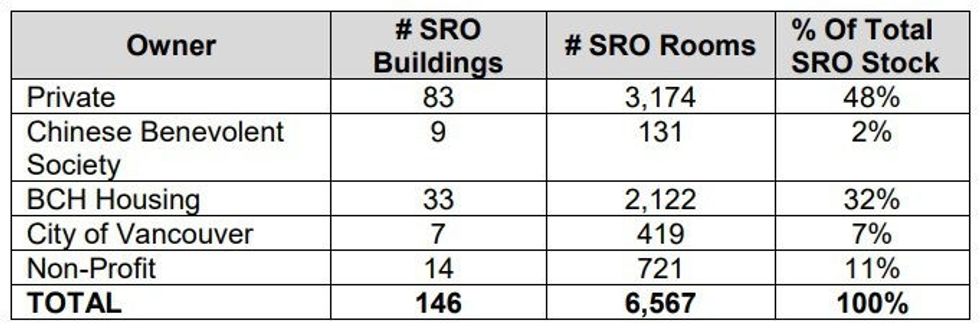
Also being presented to Council on May 30 is the City's 2023 Low-Income Housing Survey, which was started in 1991, but has not been conducted since 2019 because data collected from the survey was intended to be gathered as part of the City's new SRO vacancy control regulations that the BC Supreme Court quashed in September 2022.
The 2023 Low-Income Housing Survey was conducted by the City between December 2022 and March 2023 with building managers of low-income housing, which includes SROs as well as non-market housing such as social housing.
The survey found that since 2003, the amount of privately-owned SRO rooms renting at the shelter component of income assistance -- $375 -- has decreased from 1,700 to just 52. Additionally, just in the last three years, the average rent in private SROs has increased from $561 to $681 (+21%) and the amount of rooms renting at twice the shelter rate has also increased from 769 to 911 (+18%).

The City also points out that provincial data from 2020 shows that 60% of residents in privately-owned SROs received income assistance and that half of them paid more than 50% of their income on rent -- well above the 30% typically defined as affordable. The Survey also found that the vacancy rate in private SROs is now around 2%.
"The increase in shelter component of income assistance [to $500], to take effect in July of this year, will help to reduce the housing burden on SRO tenants, but rents in most private SROs will continue to be far beyond affordable levels for low-income residents," the City says. "The economics of adequately operating and maintaining ageing privately-owned SROs at rents affordable to those on income assistance are no longer feasible without external subsidies."
Those that remain affordable are also incredibly unsafe, with fire threats a constant concern, and unliveable to the point that many opt to live in encampments on the streets instead. According to the City, since 2019, nine SROs with a total of 362 rooms were closed due to fires or unsafe conditions and there are currently 22 buildings with over 1,200 rooms that are closed or have been demolished recently, representing about 16% of the total SRO stock in Vancouver.
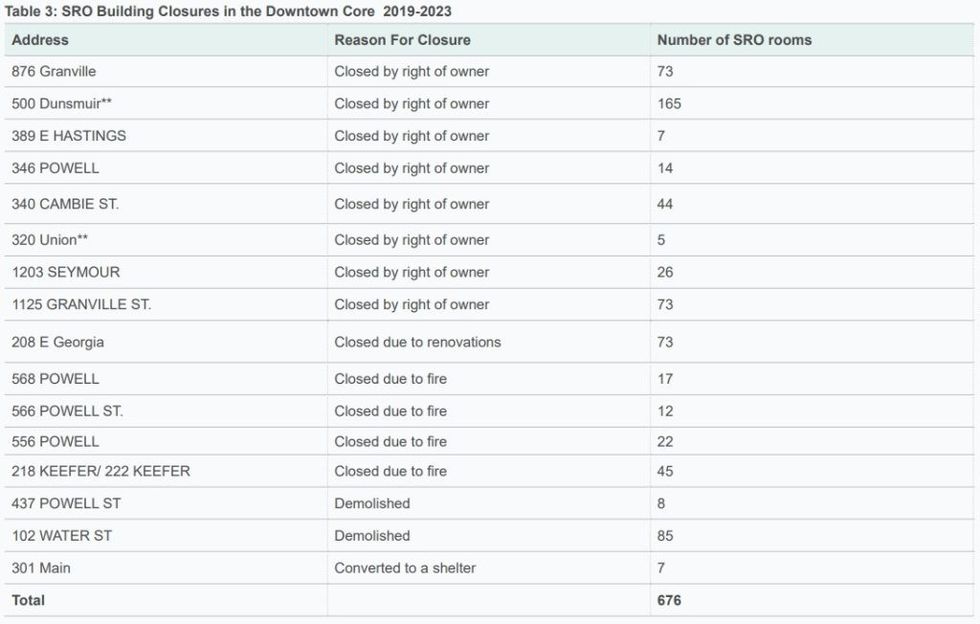
Single Room Accommodation Bylaw Amendments
In response, the City is looking at several amendments to the Single Room Accommodation (SRA) Bylaw, which "prevents the loss of low-income housing and the displacement of tenants in Vancouver's Downtown Core," according to City.
Under the current bylaw, a "conversion charge" of $230,000 per door can be attached as a condition for a SRA Demolition Permit or Conversion Permit, with the fee used to cover the cost of replacing the designated room. In other cases, Council may require a building owner replace the removed SROs with social housing either through the redevelopment or offsite.
One amendment the City is proposing is to raise the conversion charge to $300,000, which the City says has not been amended since 2020 and would better reflect the current market costs for construction.
Another amendment the City is proposing is to expand the definition of "demolition" to also include the neglect of building owners and intentional actions such as arson that result in the building being declared uninhabitable or ordered to be removed or demolished, and the City says that this would ensure that rooms that are lost as a result of neglect or arson would be replaced.
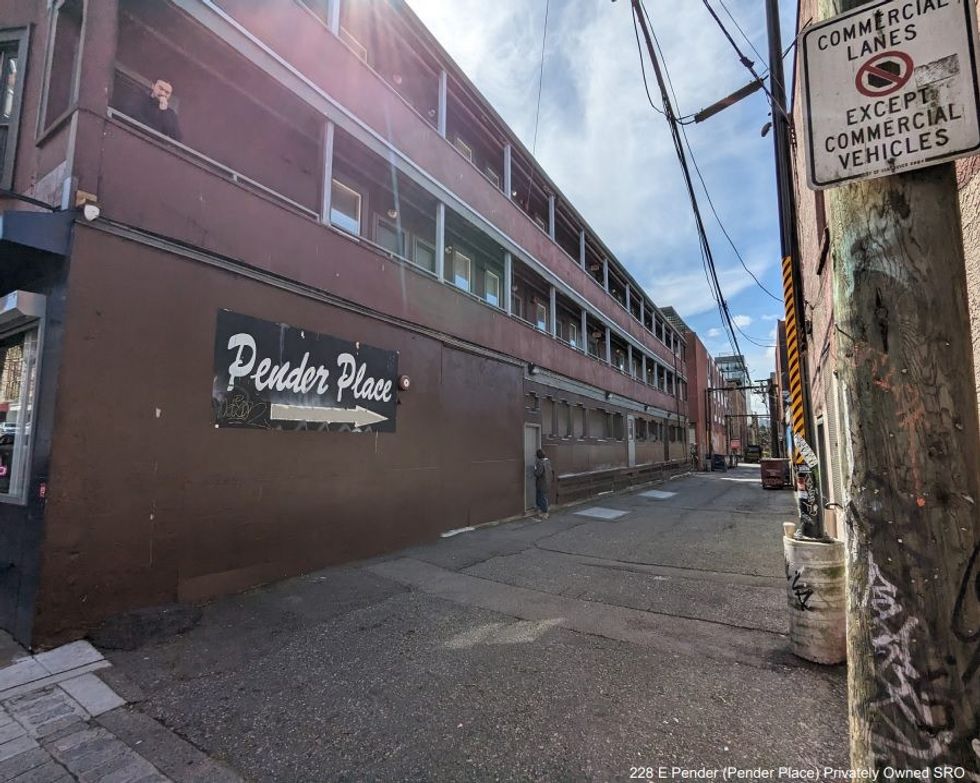
A third amendment that's being proposed would expedite the delivery of SROs by expediting permit approvals. Currently, applicants have to obtain an SRA permit before they can apply for a development or building permit, and the the proposed amendment would allow applicants to apply for the latter concurrently with the former.
Two other amendments are being proposed that would allow the General Manger of Arts Culture and Community Services to approve SRA permits in cases where three or fewer rooms are being converted or demolished and cases where the applicant is a provider of social housing and the proposed conversion or demolition results in replacement rooms being secured as social housing.
Currently, SRA permits in those cases are approved by Council. If the amendments are approved, cases involving four or more rooms will continue going to Council for approval.
READ: BC Housing 11-Acre Skeena Terrace Redevelopment to Now Include 1,900 Homes
Aside from the aforementioned bylaw amendments, the City is also recommending Council approve a grant of $50,000 to the Downtown Eastside SRO Collaborative (SRO-C) to expand the tenant-led fire safety pilot program, which promotes fire safety and building walkthroughs. The program currently includes 18 buildings, and the new grant would increase that number to 36. The grant would come from the 2023 Arts, Culture, and Community Services budget.

